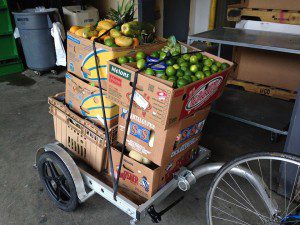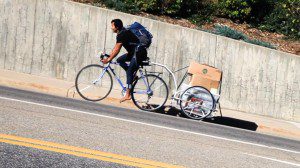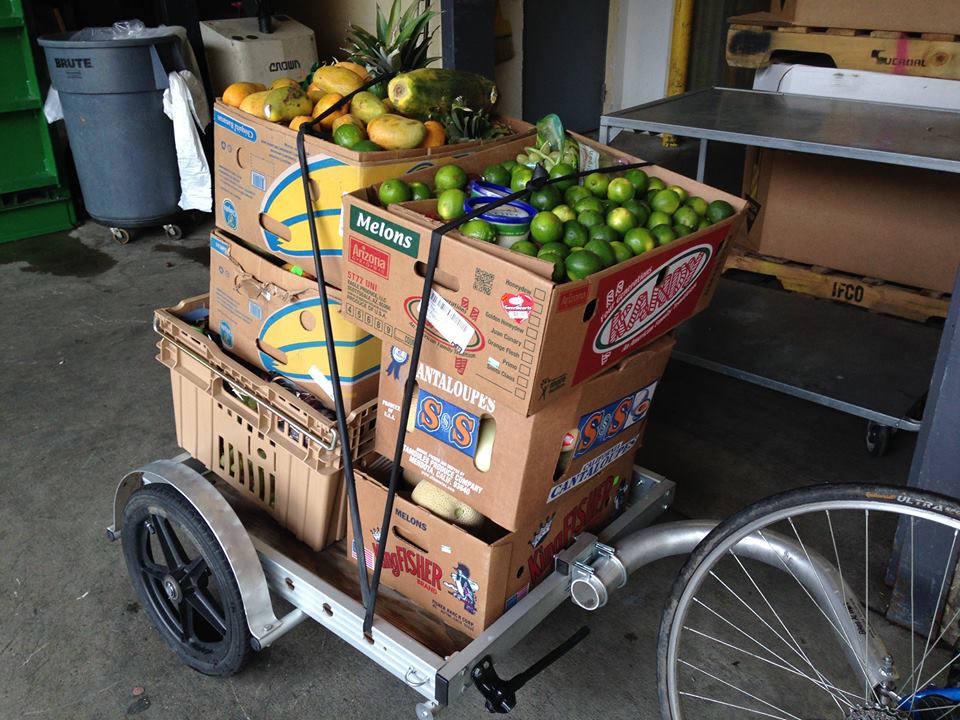University of Colorado student uses Foundation support to solve computer science problems at local non-profit

Zach Doyle
Zach Doyle can’t remember a time when he wasn’t interested in computer science.
“I spent most of my childhood summers attending and, later, working at, computer camp in my hometown of Bethesda, Maryland,” Zach said. “I’ve always liked the unambiguous nature of formal languages and the underlying logic they express.”
Thanks to The Casey Feldman Memorial Foundation, Zach, currently a junior at the University of Colorado Boulder, had the opportunity to expand and apply his programming skills in a big way. He was awarded a computer science scholarship to use his technological skills as an intern at the Boulder Food Rescue (BFR) non-profit organization.
Boulder Food Rescue aims to revitalize the food pantry system to get food that would otherwise be wasted to people who might otherwise go hungry. Local businesses load Boulder Food Rescue bins with soon-to-expire fresh produce. Volunteers hook the bins to their bicycles and deliver the payload to soup kitchens and other organizations able to distribute the food. The system works—if everything is tracked properly to make sure food isn’t wasted due to missed pick-ups or double deliveries. That’s where Zach came in.

Boulder Food Rescue diverts thousands of pounds of fresh produce every day which otherwise would be disposed of
Zach had previously worked with a homeless shelter that was chronically under-supplied, and he was familiar with the problems of waste in food distribution systems. He was eager to help Boulder Food Rescue address those problems using his unique skill set.
“I worked with the Food Rescue Robot, which, misleadingly, is not a robot but a dynamic webpage,” Zach said. The webpage was designed with the help of Sean Wiese, the first University of Colorado student to receive a computer science stipend from the Casey Feldman Memorial Foundation. Sean graduated in 2013.
Under the mentorship of Caleb Phillips, the Food Rescue Robot’s original designer and an adjunct professor at the University of Colorado, Zach quickly learned how to improve the software needed for the food transfer process.
“Zach came into the project with very little experience directly applicable to the task. Nevertheless, he picked up concepts quickly,” Caleb said, also mentioning Zach’s kindness and thoughtfulness as a worker. “I enjoyed working with him.”

Pick- ups and deliveries are made by bicycle to minimize the impact on the environment
Zach spent much of his internship updating the Food Rescue Robot to allow for a more efficient and useful delivery system. When he started, the Food Rescue Robot could track a donor location, a recipient location and the food items that could be transferred. Zach taught the system to track schedule chains, consisting of multiple stops to ensure that the foods available arrive promptly at the places that need them the most.
“Through this internship, I gleaned more skills while working on a real project with a real organization,” Zach said. “I found it immensely satisfying to work on a real project with real consequences, as opposed to writing the same code every Computer Science major before has written.”
Caleb said the code Zach wrote for the Food Rescue Robot is now an integral part of the tool, and it’s used by 22 cities internationally to track food recovery. The system has rescued 1.13 million pounds of food to date, with the help of 949 volunteers.
“I can confidently say that more food will get to more people who need it because of the computer code I wrote,” Zach said. “There is, as far as I’m concerned, no feeling that compares to applying one’s self—in a skilled capacity—for the greater good.”
Please consider donating to the Casey Feldman Foundation to aid not only students, but also local communities.
Related Links:
“Foundation Establishes Computer Science Student/Non-Profit Partnership; Recipient Helps the Hungry”, Casey Feldman Foundation, Nov. 2012
“Class project helps divert 170,000 pounds of food from the dumpster”, University of Colorado – Boulder, Oct. 2012
“Sean Wiese Receives First Casey Feldman Award for his work with Boulder Food Rescue“, Department of Computer Science, University of Colorado – Boulder


